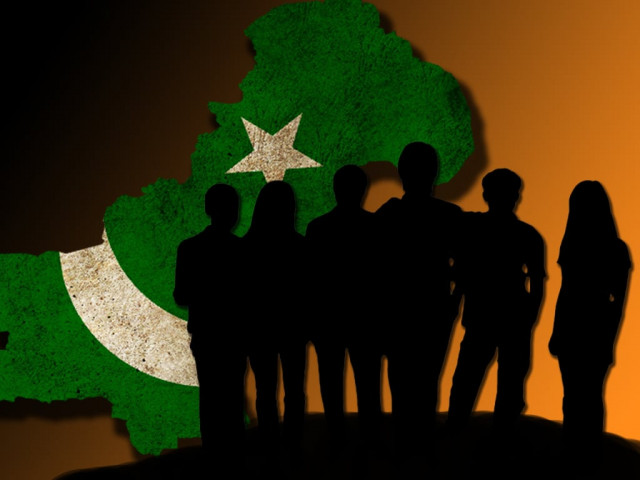Don’t look back in anger: ‘Broken dreams make angry young men tick’
Experts come together to connect the dots between youth and violence.

"Social and political workers don’t play their role. The youth is the hope of a peaceful Karachi," Zahid Farooq of the URC. DESIGN: SUNARA NIZAMI/FILE
The youth is where the power of a country resides. When it is channelled constructively, a prosperous economy can be built. But the youth is angry and frustrated - as they are in Pakistan - waves of violence follow, say experts.
During a discussion on the issue titled ‘Youth and Violence: searching for a relationship’ organised on Thursday by the Urban Resource Centre (URC), members of civil society got together and tried to connect the dots between the youth and violence. They agreed that the factor which mitigated violence was poverty.
Fazal Noor, an architect and urban planner, said, “Our youth thinks differently. The youth comprises 70 per cent and it is affected with the international politics as well,” he added. He said that nowadays, young people have a lot of new technology at their disposal. “But they use it negatively. There is also a huge gap between their dreams and what they are able to achieve and have access to in their lives.”
He then pointed out the difference between the mindset of parents and their children. “We were even afraid of parents and thought twice picking out our own spouses,” said Noor, adding that now the youth doesn’t even listen to their families, let alone strangers. Enrollment at educational institutions is higher than it was at Partition, but they have failed to be good citizens, he added. “Some still act in a courteous manner. They have patience and help others out. Social and political workers must encourage those who play a positive role in society.”
Zahid Farooq of the URC said that Orangi Pilot Project’s slain director, Perween Rahman, was also victim of built-up violence which needs to be eradicated. “Social and political workers don’t play their role. The youth is the hope of a peaceful Karachi.”
The participants of the discussion also agreed that textbooks should be revised as they spread hatred among different ethnic groups. “Textbooks should not differentiate between ethnic groups and religions - they currently do this, making the situation in the country worse,” said William Sadiq, a social activist at the discussion.
Ahmed Khan Shedai, another participant, said that distribution of resources and gap between poor and rich has increased the level of frustration among those who aren’t well off.
This frustration is then released as violence on the street. He said that public schools were not imparting quality education, leading to fewer job opportunities and even more frustration. “Private institutions are reserved for a limited community. The education gap also encourages a major portion of the youth to go against social norms and values.”
Another participant, Fauzia Ali, said, “We are also responsible - most educated people don’t vote and then cry about incompetent and corrupt politicians.”
Though the discussion seemed to be dark, Noor was still optimistic. “Hope prevails. We have to own our youth. We have to guide them. We all have to play our role seriously if want to see a peaceful society.”
Published in The Express Tribune, March 24th, 2013.


















COMMENTS
Comments are moderated and generally will be posted if they are on-topic and not abusive.
For more information, please see our Comments FAQ